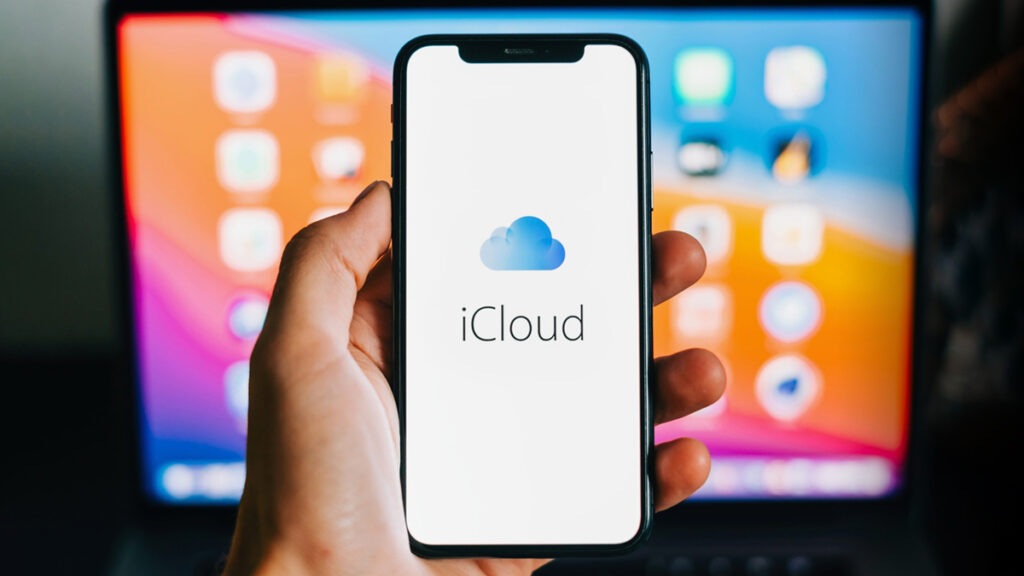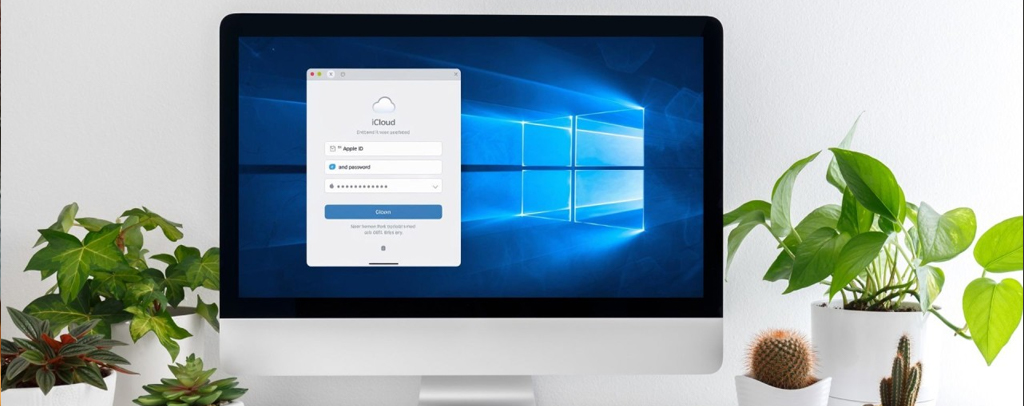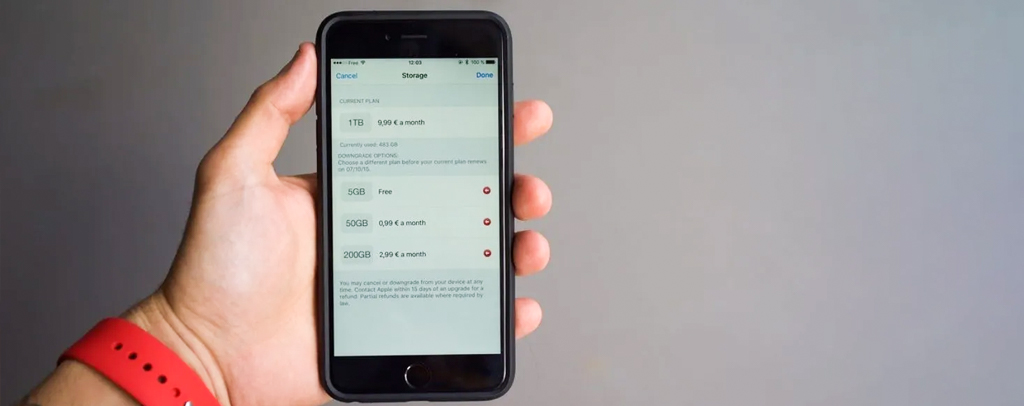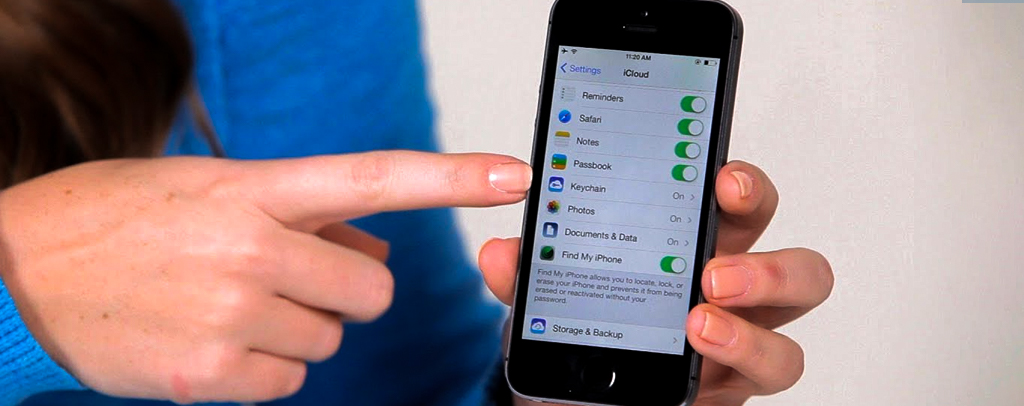
You have three options for canceling your Apple iCloud storage plan if you have found an alternative method of storing the storage on your iPhone or any other Apple device.
While cloud storage services like Dropbox and Google Drive are adequate for storing data, owners of Apple devices typically benefit from better security and insurance through iCloud.
How To Cancel iCloud Storage On iPhone?
If you want to know how to cancel iPhone storage plan, just follow these easy steps:
1. Open the Settings app on your iPhone and tap your Apple ID.
2. Press the iCloud icon.
3. Select Manage Account Storage.
4. Click on Modify Storage Plan.
5. Tap on Downgrade Options (your Apple ID password would need to be entered).
6. Choose the Free 5GB plan.
That’s all.
This should help you understand how to cancel iCloud storage plan on an iPhone or other Apple device. If you’re not using an iPhone, use the alternate method described below – (how to cancel Apple iCloud storage):
How Can I Unsubscribe From Mac OS iCloud Storage?

The steps that follow are listed below if you want to use your Mac computer to cancel iCloud storage (how to cancel storage on iCloud):
1. To access System Settings, click the Apple menu (Apple icon). Older devices may find that System Preferences is what you’re looking for.
2. Select Manage after clicking on the iCloud option.
3. Select “Manage.”
4. Select Modify Storage Plan.
5. Select Downgrade Options, which is located directly below the new window and may require your Apple ID and password.
6. To cancel, choose the 5 GB Free Plan.
7. Select “Done.”
That’s all.
With this information, you may now easily cancel your iCloud storage subscription on your macOS device. On the other hand, if you use a Windows computer, continue reading to find out how to cancel iCloud storage plan on a Windows PC:
How To Cancel Your Windows OS iCloud Subscription?

if you don’t currently have an iPhone or a macOS computer. If so, you ought to stop using your Windows device’s iCloud storage. You can do this by taking the steps listed below:
1. Launch the iCloud application on your computer, then select your Apple ID.
2. Select Storage.
3. Select “Downgrade Options.”
4. Select “Downgrade Options.”
5. Type in your password and Apple username.
6. To cancel, choose the 5 GB Free plan.
7. Select “Done.”
That’s all.
You should now be aware of the three methods on how to cancel Apple iCloud storage on various devices.
How To Cancel iCloud Storage Plan Without an iPhone?

How to cancel storage on iCloud? Unfortunately, you need to use an Apple device or a Windows computer with the iCloud program installed in order to cancel your iCloud storage subscription. If you’re asking why it’s not possible for me to cancel my iCloud storage plan directly, it’s because Apple requires that consumers manage their iCloud subscriptions via the iCloud for Windows software or their devices. For reasons of security and account verification, this restriction is in place (how to cancel Apple iCloud storage).
What Happens If I Cancel My iCloud?
What happens if you stop using iCloud storage? When you deactivate your iCloud Storage plan, you’ll revert to the standard 5GB free plan. You will therefore probably discover that the app is no longer syncing or updating your data if your iCloud data exceeds this limit.
Therefore, you are unable to access and modify documents stored on the drive, send and receive messages to your iCloud email account, or even backup your device to the cloud.
Furthermore, your device won’t sync or do a cloud backup if it needs more space to store data. If you add new images, movies, or documents to the iCloud, the current ones will still be there .
You can utilize your iCloud Photo Library and iCloud Drive documents, movies, and images for 30 days after your subscription is disabled. Apple usually keeps data in iCloud for 30 days after you upload – more than 5GB of it.
What Happens With Synced Data With iCloud Following Cancellation?

Your current iCloud data is unaffected by downsizing your storage plan. To sync the most recent data or update information, though, you won’t need to upgrade your storage space.
Things to Take Into Account Before Canceling iCloud Storage
- App Dependencies: Apps that depend on iCloud storage, such as Find My iPhone, may not function properly if it is canceled. Make sure you’ve prepared backup plans.
- Cancellation using Web Browser: Users also have the option of canceling iCloud storage through their web browser, which is not covered in this article.
- Remaining Unused Storage: Mention that users can keep primary data, such as contacts, on their free 5GB of iCloud storage, even after canceling.
How To Use iCloud Management Effectively To Avoid Cancellation? Image
It’s essential to manage your iCloud storage wisely because an overly full iCloud account can make it more difficult to rapidly access files or do device backups. Buying more iCloud storage is an option, although it’s not always required. Space can be gained by organizing storage and getting rid of clutter.
- Identify Storage-Consuming Files: Look through your iCloud to see which files take up the most space. Open your device’s Settings app, select iCloud, and then click Manage Account Storage. The space taken up by various file kinds, such as backups, pictures, and communications, will be displayed as a bar graph.
- Optimizing Photo Storage: In iCloud, photos frequently occupy a significant amount of space. Choose “Optimize iPhone Storage” from the iCloud Photos settings to swap out the original, high-resolution images with smaller ones. In the meantime, it’s crucial to check through the photo album and remove any duplicates or unneeded photos.
- Organizing Text Messages and Attachments: Text messages can generate over a gigabyte of data in iCloud, especially if they contain a lot of emoticons and images. To clear up space, you can erase previous messages and attachments straight from the Messages app on your iPhone.
- Deleting Old iCloud Backups: Old or unused iCloud backups can take up a lot of space. Go to the Settings app, pick iCloud, touch on your Apple ID, and then select Manage Account Storage to get rid of these. You may view and remove older backups from there.
- Cleaning up iCloud Drive: Go through the data kept there and remove everything that isn’t needed. You can do this by opening the Settings app on your iOS device or the System Preferences on a Mac. Additionally, you can control which Mac apps use iCloud storage and disable its use for particular apps.
- Managing Email Attachments: For people with an iCloud email address, their emails, including the attachments, are saved to their Apple account storage. Space can be freed up by deleting pointless emails, particularly those with big attachments.
